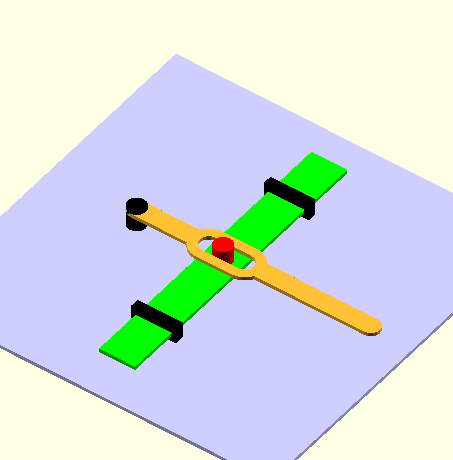Table of Contents
The introduction of Composite numbers:
Composite numbers, also known as composite integers, are any positive integers greater than one that can be evenly divided by more than one positive integer. This means they are not prime numbers, since they can only be divided evenly by themselves and one.
Composite numbers can be divided by any number that is not itself, so they have more than two factors. For example, the number 8 is composite because it can be divided by 2, 4, and 8.
The number 9 is also composite because it can be divided by 3 and 9. Composite numbers were first introduced by ancient Greek mathematicians in the fifth century BC. They were used to explain the concept of divisibility in numbers.
The ancient Greeks believed that any number can be divided by two or more numbers and that this division could be used to create a pattern. This pattern is known as the “sieve of Eratosthenes,” which is still used today to find prime numbers.
Composite numbers have been used in many different areas of mathematics, from number theory to calculus. They are also used to calculate the greatest common divisor of two or more numbers and to find the least common multiple of two or more numbers.
In addition, composite numbers are used to calculate the greatest common factor of two or more numbers and to find the least common denominator of two or more fractions. Composite numbers are also used in the scientific field to represent the number of atoms in a molecule.
For example, a molecule of water has two hydrogen atoms and one oxygen atom, so it can be represented as a composite number. The composite number of a molecule is often used to determine its chemical properties.
The definition of the Composite numbers:
Composite numbers (also known as compositional numbers) are numbers that can be expressed as a sum of distinct positive whole numbers in more than one way. For example, the number 6 can be expressed as 1 + 5, 2 + 4, or 3 + 3.
Composite numbers are also known as B-numbers or sum numbers. Composite numbers are important in mathematics because they are closely related to several concepts, including the partition of numbers, the sieve of Eratosthenes, and the partitioning of sets.
For example, the number of ways to partition a number can be expressed as a composition number. The number of prime numbers less than or equal to a given number can also be expressed as a composition number. The study of these numbers is known as composition theory and is an active area of research in mathematics.
Composition numbers are also related to problems in computer science, such as the knapsack problem and the bin packing problem. Compose numbers are also related to several puzzles, such as the twelve coins problem and the monkey and banana problem.
These puzzles involve finding a way to group a given set of objects such that the sum of the objects in each group is the same. The solutions to these puzzles can be expressed as composition numbers.
The Types of Composite Numbers:
Composite numbers are numbers that can be divided evenly by numbers other than 1 and itself. They are the opposite of prime numbers, which can only be divided evenly by 1 and itself. Composite numbers can be divided into four main types:
1. Even Composite Numbers: These are composite numbers that can be divided evenly by 2. These are usually even numbers that are not prime, such as 6, 8, 10, 12, 14, and so on.
2. Odd Composite Numbers: These are composite numbers that can be divided by numbers other than 2. These are usually odd numbers that are not prime, such as 9, 15, 21, 25, and so on.
3. Perfect Composite Numbers: These are composite numbers that are the product of two prime numbers. These are usually numbers such as 12, 18, 30, 42, and so on.
4. Abundant Composite Numbers: These are composite numbers that have a sum of their divisors (excluding the number itself) that are greater than the number.
These are usually numbers such as 24, 30, 36, 40, and so on. These are the four main types of composite numbers. While there are other types of composite numbers, these are the most common.
Examples of Composite numbers:
Composite numbers are integers that are divisible by at least two other numbers. They are the opposite of prime numbers, which can only be divided by themselves and
Composite numbers are also known as non-prime numbers. Examples of composite numbers include 4, 6, 8, 9, 10, 12, 14, 15, 16, 18, 20, 21, 22, 24, 25, 26, 27, 28, 30, 32, 33, 34, 35, 36, 38, 39, 40, 42, 44, 45, 46, 48, 49, 50, and so on.
The number 4 is divisible by 2 and itself, and can also be divided by 1. 6 can be divided by 2, 3, and itself.
8 can be divided by 2, 4, and itself.
9 can be divided by 3, and itself.
10 can be divided by 2, 5, and itself.
12 can be divided by 2, 3, 4, and itself.
14 can be divided by 2, 7, and itself.
15 can be divided by 3, 5, and itself.
16 can be divided by 2, 4, 8, and itself.
18 can be divided by 2, 9, and itself.
20 can be divided by 2, 4, 5, 10, and itself.
There are many other examples of composite numbers. These numbers are important in mathematics, as they can be used in calculations, such as factorization, prime factorization, and prime decomposition. They are also important for finding the lowest common multiple (LCM).
The Properties of the Composite Numbers:
Composite numbers are those numbers that have more than two factors. They are the product of two or more prime numbers, and they are not prime numbers themselves.
1. Divisibility: A composite number is divisible by at least two different numbers, and not just by itself.
2. Even or Odd: A composite number is always an even number since it has at least two factors.
3. Factors: A composite number has an infinite number of factors.
4. Prime Factorization: A composite number can be expressed as a product of prime numbers.
5. Perfect Square: A composite number can be a perfect square if it has one factor that is a square number.
6. Multiplication: A composite number can be multiplied by any other number to create a new composite number.
7. Division: A composite number can be divided by any other number to create a new composite number.
8. Number of Factors: A composite number has infinite factors.
9. Representation: A composite number can be represented as a product of two or more prime numbers.
10. Perfect Square: A composite number can be a perfect square if it has one factor that is a square number.
The Uses of Composite Numbers:
Composite numbers are numbers that have more than two factors. These numbers are not prime numbers and are the product of two or more numbers. Composite numbers are also known as non-prime numbers.
Composite numbers are used in many areas of mathematics and science. They are used in number theory, cryptography, and graph theory. In number theory, composite numbers are used to classify integers into different categories.
In cryptography, composite numbers are used to create secure codes. Lastly, in graph theory, composite numbers are used to create graphs and study their properties.
Composite numbers are also used in economics, finance, and engineering. In economics, composite numbers are used to measure economic indicators such as inflation, unemployment, and GDP. In finance, composite numbers are used to measure stock prices and other financial data.
Finally, composite numbers are used in engineering to calculate the strength of materials and structures. Composite numbers are also used in everyday life.
For example, composite numbers are used to measure time, temperature, and distance. They are also used to determine the size of clothes, shoes, and other items.
Finally, composite numbers are used to calculate the cost of items, the number of people in a room, and the amount of money that can be saved.
Examples of the Composite Numbers:
Composite numbers are the product of two or more prime numbers. These numbers are not prime, and their prime factorization is not necessarily unique.
They are usually even, but there are some exceptions. The largest known composite number is currently 25,964,951,051,921,958,323,024,599,168,028,992,902,512,823,853,097,926,945,743,495,841,739,612,619,769,925,639.
The study of composite numbers is an important part of number theory. By studying their properties, mathematicians have found ways to identify composite numbers and prime numbers quickly and have developed algorithms to determine the prime factorization of composite numbers.
This knowledge has been used to develop efficient algorithms for solving problems related to composite numbers, such as finding the greatest common divisor of two numbers. Composite numbers are important because they are the building blocks of larger numbers.
By studying their properties, mathematicians have been able to develop powerful algorithms for solving number theory problems. These algorithms are used in cryptography, computer science, and other fields. In conclusion, composite numbers are important in number theory and other fields.
They are the product of two or more prime numbers, and their prime factorization is not necessarily unique. By studying their properties, mathematicians have developed powerful algorithms for solving number theory problems.
Also, read The Pythagorean theorem






























